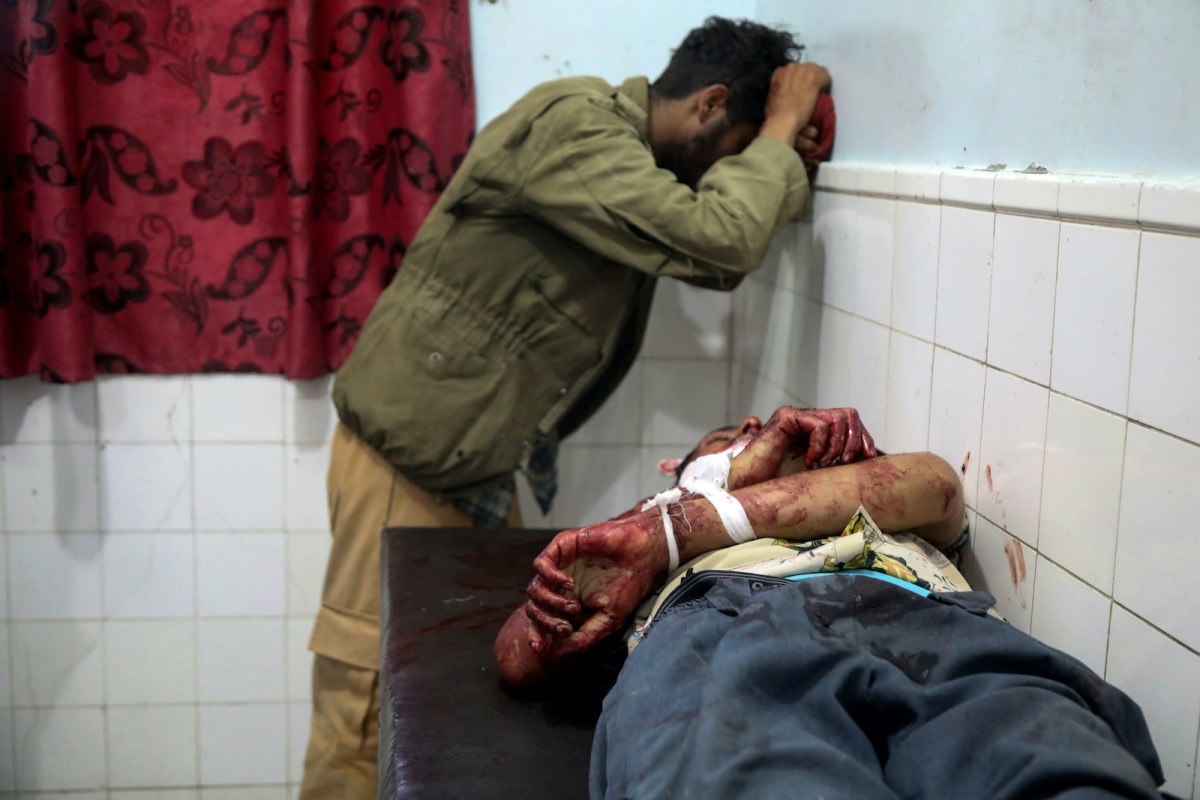[ad_1]
Saudi Arabia on Monday offered Yemen’s Houthi rebels a “comprehensive†UN-supervised ceasefire, as part of a series of fresh proposals aimed at ending a catastrophic six-year conflict.
But the Huthis swiftly dismissed the initiative, which comes as the Iran-backed rebels escalate attacks on the kingdom – including its oil facilities – and push to seize the Saudi-backed Yemeni government’s last northern stronghold in the war-torn nation.
The initiative includes “a comprehensive ceasefire across the country under the supervision of the United Nations,†a Saudi government statement said.
Riyadh also proposed reopening the international airport in Sanaa, the rebel-held capital, and restarting political negotiations between the Yemeni government and the Huthis, the statement added.
The kingdom’s plan also called for depositing taxes and customs revenue from ships carrying oil to the Red Sea port of Hodeida – a key conduit for desperately needed aid – in a joint account of the Yemeni central bank.
“We want the guns to fall completely silent,†said Saudi Foreign Minister Prince Faisal bin Farhan.
“The initiative will take effect as soon as the Houthis agree to it,†he added, hailing it as “an opportunity to end the crisis†in Yemen.
The Yemeni government welcomed the initiative, while the Houthis brushed it off as “nothing new†as they reiterated their demand that a Saudi-led air and sea blockade on Yemen be completely lifted.
“Saudi Arabia must declare an end to the aggression and lift the blockade completely,†said Houthi spokesman Mohammed Abdulsalam, according to the rebel’s Al-Masirah television.
Riyadh led a military coalition into Yemen in 2015 to prop up the internationally recognized government, but it has struggled to oust the highly motivated rebels.
The coalition says it enforced a naval and air blockade to prevent the smuggling of weapons to the rebels from Iran — allegations Tehran denies.
‘Messaging to Washington’
Saudi Arabia’s proposal follows the failure of a unilateral ceasefire last year.
Last April, the coalition announced a temporary ceasefire in war-wracked Yemen to prevent the spread of coronavirus, but the Houthis dismissed that initiative as political maneuvering.
“Coming out publicly with a ceasefire plan – as the Saudis have done unsuccessfully in the past as well – is meant to force the Houthis to say ‘yes’ or ‘no’ publicly,â€Â Elana DeLozier, a fellow at the Washington Institute for Near East Policy, told AFP.
“Their rejection of the proposal allows the Saudi-led coalition to claim the Houthis are the problem.
“In that sense, this plan may be Saudi public messaging to Washington to try to make the pitch that they are serious about peace and it is the Houthis who are not,†DeLozier added.
The latest proposal follows a renewed push by the new US administration of President Joe Biden to revive stalled peace talks.
The United States, which has paused arms sales to Saudi Arabia and pulled support for its offensive operations in Yemen, has condemned a recent spike in Houthi drone and missile attacks on the kingdom.
A drone strike sparked a fire at a Riyadh oil refinery on Friday, in the second major assault this month on Saudi energy installations claimed by the insurgents.
On Sunday, Saudi Arabia began naval drills in the Gulf in a bid to boost the security of its oil fields, state media said, adding that energy giant Saudi Aramco took part.
The Houthis are also battling towards Marib, the government’s last northern stronghold, piling pressure on Saudi-backed forces.
At the weekend, the coalition said its air strikes pounded Houthi bases and provided support to Yemeni pro-government forces battling a quickening rebel advance on oil-rich Marib.
The loss of Marib would be a huge blow for the Yemeni government, but would also threaten catastrophe for civilians, including at least one million displaced people sheltering in the region, many in desolate camps in the surrounding desert.
The UN, which says Yemen is facing the world’s worst humanitarian crisis, warned last month of disastrous consequences for civilians if the fight for Marib continues.
Tens of thousands of people, mostly civilians, have already been killed and millions displaced in Yemen’s long war, which has crippled the economy and healthcare system.
– AFP
[ad_2]
Source link













